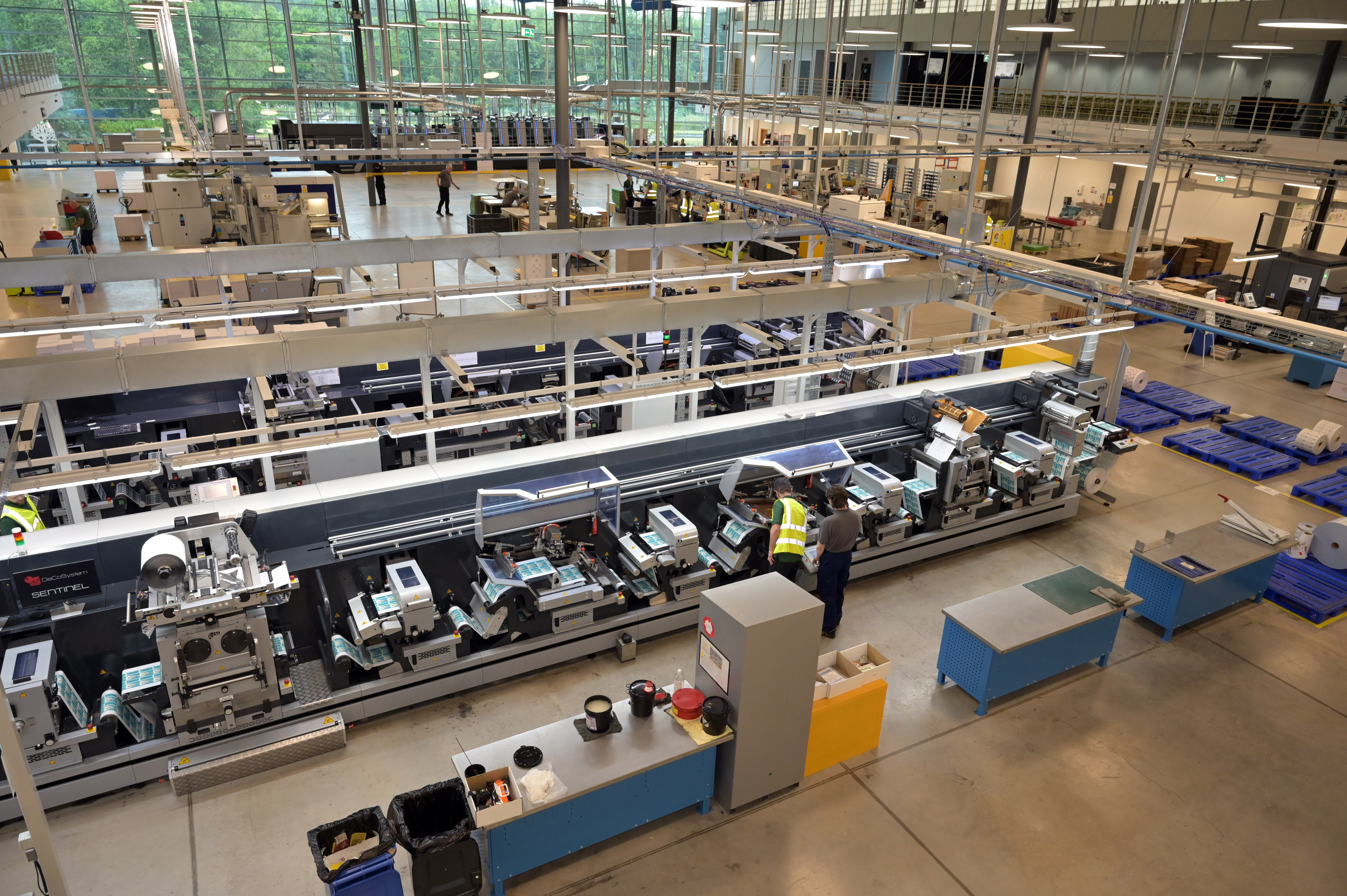Swiss-based Medacta leads the charge in redefining orthopedics

Switzerland has a distinguished reputation as a global leader in medical technology (medtech). Renowned for its unwavering commitment to pioneering solutions, the Swiss medtech ecosystem stands as a testament to a rich heritage of innovation. Fueled by a blend of academic prowess, governmental support, and industry dynamism, Switzerland continues to push the boundaries of possibility, fostering an environment that enables collaborations and groundbreaking advancements. One company blooming within this nurturing atmosphere is Medacta, a Swiss company dedicated to helping doctors improve the care and well-being of orthopedic and spine surgery patients around the world.

Siccardi
CEO
Medacta
Switzerland’s prominence as a premier medtech hub is underscored by its robust industry presence, boasting over 1,400 companies, and provides employment to 67,500 individuals. These enterprises collectively generate revenue surpassing USD 24 billion per year according to Swiss Medtech, the association of Swiss medical technology. Francesco Siccardi, CEO of Medacta, an exemplar among the sector’s success stories, offered insight into this dynamic ecosystem. He emphasized the paramount importance of collaboration in propelling innovation, affirming, “In Switzerland, there is access to expertise that is second to none.”
Much of this expertise stems from the Swiss academic sector, renowned for spearheading global innovation and research efforts. With state-of-the-art facilities and world-renowned researchers, Switzerland’s academic institutions offer a fertile ground for interdisciplinary collaboration and the cultivation of emerging talent. By partnering with both local and international corporations, Swiss academia propels cutting-edge technology, shaping the future of scientific discovery in the sector.
Similar to the majority of companies within the sector, Medacta collaborates with other key stakeholders. In general, Swiss medical equipment manufacturers exhibit a staggering preference, with over 90% opting to engage with a diverse array of partners, including universities, hospitals, and companies from allied sectors like mechanical engineering and pharmaceuticals.
Siccardi expanded, “Historically, Switzerland has heavily focused on innovation. Due to the country’s high cost of living, we are forced to be innovative, ensuring we create high-value-added products and services that improve efficiency. For the last several years Switzerland has ranked number one in the world for patent production per capita. Swiss innovation is strongly supported by governmental projects and initiatives. For instance, some research funds are relatively easy to access if you collaborate with local universities, fostering partnership between industry, research centers, and academia.”
Switzerland’s free trade policies further lay the groundwork for an optimal environment, complemented by strategic governmental initiatives such as Innosuisse, the Swiss Innovation Agency. Innosuisse serves as a catalyst for knowledge transfer, further facilitating valuable partnerships, offering startup coaching, and provides funding for up to half of research project costs for companies partnering with Swiss institutes.
Cohesively collaborating with institutes around the globe, Medacta has led the charge in revolutionizing orthopedic surgery through groundbreaking innovation in the development of orthopedic products and surgical techniques, setting new standards for patient care and surgical outcomes. The company’s solutions create highly personalized preoperative planning and implant placement methodologies, including personalized kinematic models and 3D-planning tools for use in hip, knee, shoulder, and spine procedures. Their pioneering techniques reduce surgical incisions and preserve nerves, muscles, and tendons surrounding joints. Their minimally invasive techniques further reduce commonly associated risks of traditional approaches and promote swift recovery.
Reflecting on Medacta’s journey since its inception in 1999, Siccardi emphasized, “Medacta is very unique; it was founded by an orthopedic patient whose own experience encouraged him to become a pioneer and discover a new approach to joint replacement. When we develop new products, our primary goal is to positively transform the patient experience. On top of that, we are committed to ensuring our innovation creates value for the healthcare system, and doesn’t increase the overall cost of a preexisting solution. We want to change the way things are done and transition standard orthopedic procedures to minimally invasive procedures, reducing costs, the need for long hospital stays, shortening rehabilitation, and improving patient outcomes.”
He continued, “Minimally invasive techniques are one macro-level direction we are spearheading. The second one is personalized medicine – providing tailored tools to individual patients. As healthcare costs in the United States are rapidly growing, there is a need in the orthopedic field to transition surgeries from expensive hospitals to smaller-scale, less expensive, and potentially even better care – ambulatory surgery centers. Our solutions offer minimally invasive, same-day procedures, and more personalized medicine, making healthcare more sustainable, while adding value – an important trend in American healthcare. We are also developing personalized solutions utilizing 3D images, CT scans, and MRIs. With the help of AI, we’re able to better identify treatment solutions tailored to each patient’s needs. This is an example of imaging management and imaging reconstruction prediction with diagnostics, all supported by AI.”
This year marks a significant milestone for Medacta, as it celebrates its 25-year anniversary. Siccardi mentioned, “We will celebrate this benchmark with another important aspect – medical education. The more innovation Medacta brings to the market, the more medical education we will need to provide surgeons and customers. We are hosting informative, educational events this year across the United States, Europe, Australia, and Japan.”
As the American market represents 50% of the total addressable global orthopedic market, Siccardi is strategically broadening Medacta’s American footprint, and strengthening its network by fostering collaborations with prominent academic centers across the states. In the future, the company strives to keep pushing forward with cutting-edge medical education, innovative technologies, and personalized solutions.
























